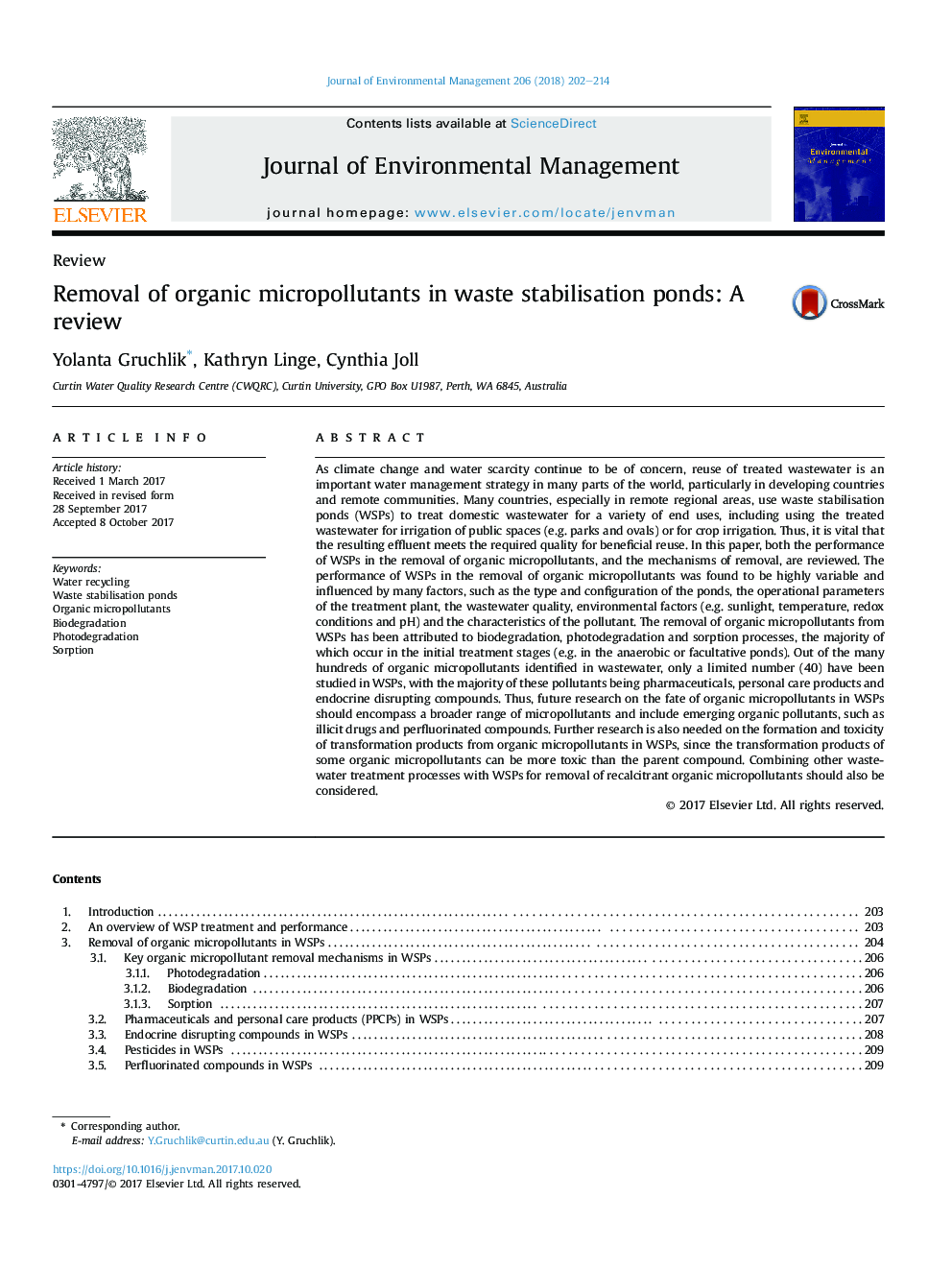| کد مقاله | کد نشریه | سال انتشار | مقاله انگلیسی | نسخه تمام متن |
|---|---|---|---|---|
| 7478671 | 1485212 | 2018 | 13 صفحه PDF | دانلود رایگان |
عنوان انگلیسی مقاله ISI
Removal of organic micropollutants in waste stabilisation ponds: A review
ترجمه فارسی عنوان
حذف میکروپلیگانهای آلی در حوضچه های پاکسازی زباله: بررسی
دانلود مقاله + سفارش ترجمه
دانلود مقاله ISI انگلیسی
رایگان برای ایرانیان
کلمات کلیدی
بازیافت آب، حوضچه های پاکسازی زباله، میکروپولاتورهای ارگانیک، تجزیه زیستی، عکاسی جذب،
موضوعات مرتبط
مهندسی و علوم پایه
مهندسی انرژی
انرژی های تجدید پذیر، توسعه پایدار و محیط زیست
چکیده انگلیسی
As climate change and water scarcity continue to be of concern, reuse of treated wastewater is an important water management strategy in many parts of the world, particularly in developing countries and remote communities. Many countries, especially in remote regional areas, use waste stabilisation ponds (WSPs) to treat domestic wastewater for a variety of end uses, including using the treated wastewater for irrigation of public spaces (e.g. parks and ovals) or for crop irrigation. Thus, it is vital that the resulting effluent meets the required quality for beneficial reuse. In this paper, both the performance of WSPs in the removal of organic micropollutants, and the mechanisms of removal, are reviewed. The performance of WSPs in the removal of organic micropollutants was found to be highly variable and influenced by many factors, such as the type and configuration of the ponds, the operational parameters of the treatment plant, the wastewater quality, environmental factors (e.g. sunlight, temperature, redox conditions and pH) and the characteristics of the pollutant. The removal of organic micropollutants from WSPs has been attributed to biodegradation, photodegradation and sorption processes, the majority of which occur in the initial treatment stages (e.g. in the anaerobic or facultative ponds). Out of the many hundreds of organic micropollutants identified in wastewater, only a limited number (40) have been studied in WSPs, with the majority of these pollutants being pharmaceuticals, personal care products and endocrine disrupting compounds. Thus, future research on the fate of organic micropollutants in WSPs should encompass a broader range of micropollutants and include emerging organic pollutants, such as illicit drugs and perfluorinated compounds. Further research is also needed on the formation and toxicity of transformation products from organic micropollutants in WSPs, since the transformation products of some organic micropollutants can be more toxic than the parent compound. Combining other wastewater treatment processes with WSPs for removal of recalcitrant organic micropollutants should also be considered.
ناشر
Database: Elsevier - ScienceDirect (ساینس دایرکت)
Journal: Journal of Environmental Management - Volume 206, 15 January 2018, Pages 202-214
Journal: Journal of Environmental Management - Volume 206, 15 January 2018, Pages 202-214
نویسندگان
Yolanta Gruchlik, Kathryn Linge, Cynthia Joll,
